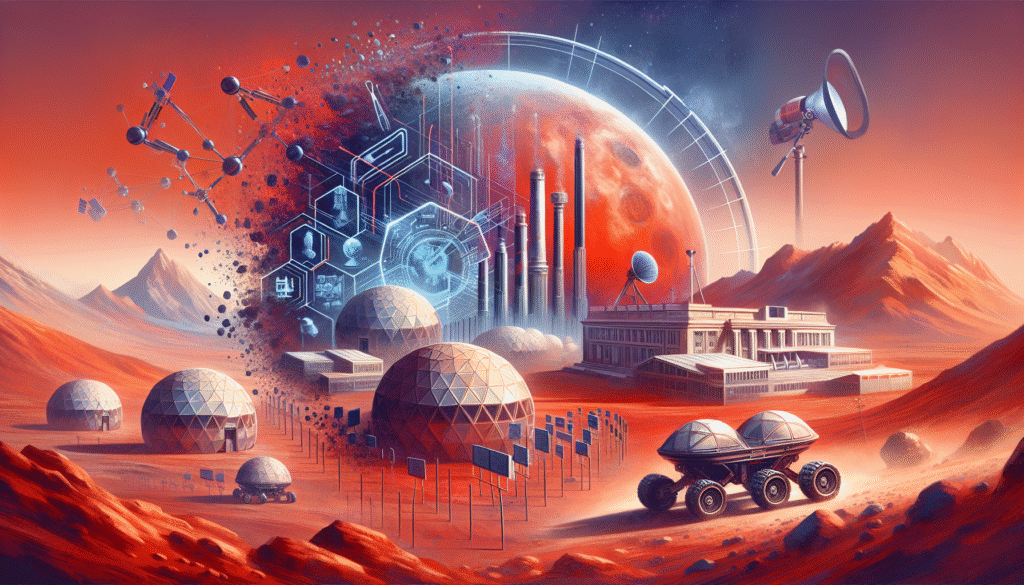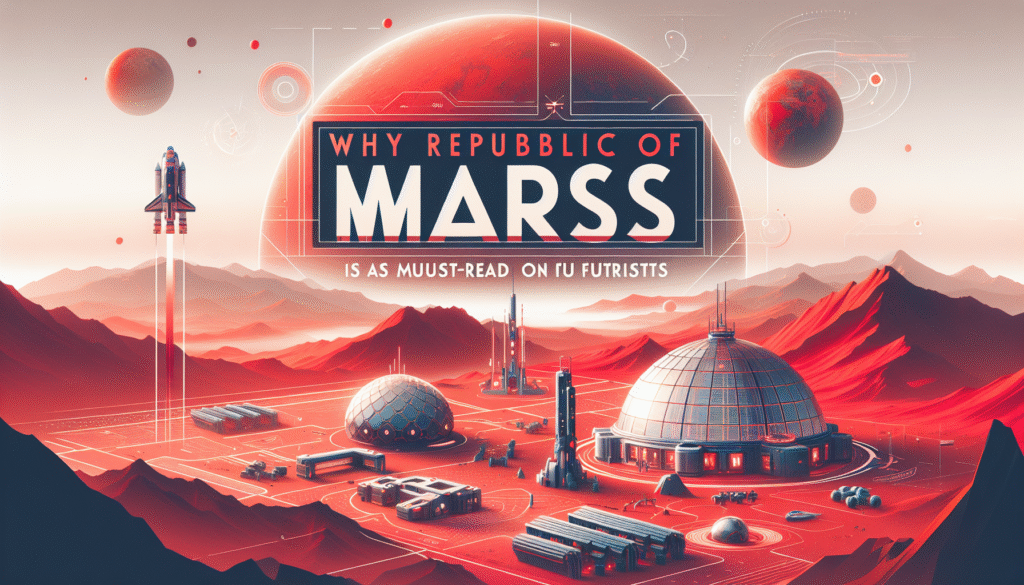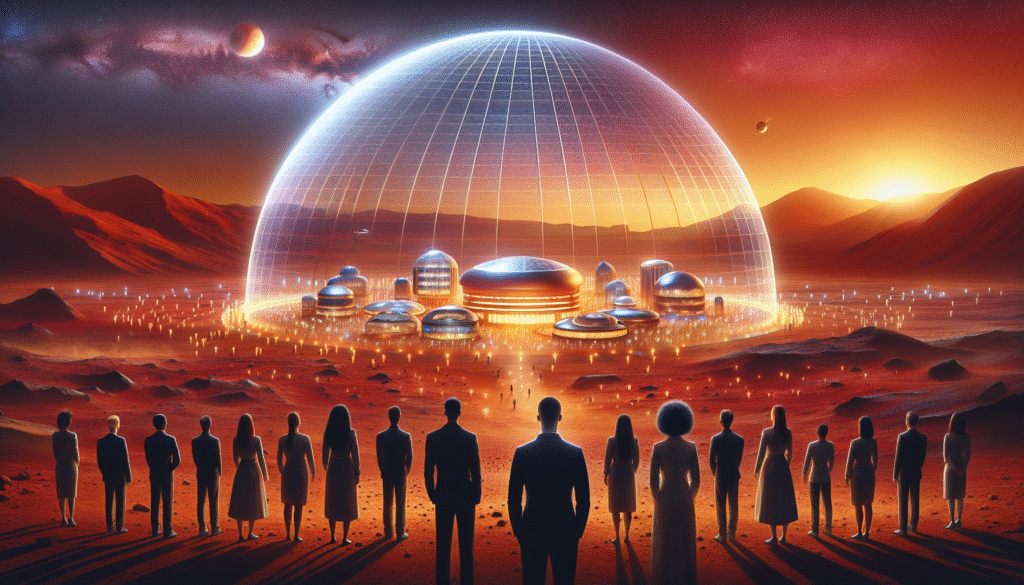Mars Colonization and Political Fiction in Republic of Mars
The prospect of colonizing Mars has been a tantalizing topic in scientific and speculative fiction for decades. As humanity’s interest in the red planet escalates with advancements in space technology and ambitious plans from organizations like NASA and SpaceX, the narrative of Mars as a new frontier offers fertile ground for exploring political and social theories. One of the seminal works in this genre is Republic of Mars, a political fiction novel that intricately weaves the challenges and possibilities of Martian colonization with profound questions about governance, societal structures, and human nature.
The Vision of Mars Colonization
The dream of colonizing Mars is grounded in both scientific ambition and a deep-seated desire for exploration. With its similarities to Earth, from the length of its days to potential water reservoirs, Mars represents both a potential second home and a canvas for human civilization. Key figures in the aerospace industry have framed colonization not just as a logistical challenge but also as a philosophical journey—one that invites us to reflect on what it means to establish a society away from Earth.
In Republic of Mars, this vision is brought to life through a compelling narrative that examines not only the technological hurdles of Martian transformation—from terraforming efforts to sustainable living conditions—but also the fundamental moral questions of colonization. Issues such as resource allocation, economic systems, and the nature of leadership are central themes that are interwoven throughout the storyline, inviting readers to ponder how governance will shape the Martian colonies.
Political Themes Explored
Republic of Mars does not shy away from examining the political struggles that would arise in a new Martian society. The novel envisages a range of governance models, from democratic institutions to authoritarian regimes, reflecting varied ideologies about power, equality, and individual rights. As settlers grapple with the harsh realities of life on Mars, their political decisions become increasingly consequential.
One of the more profound explorations in the novel is the concept of citizenship and belonging. With Earth’s political dilemmas—such as nationalism, social inequality, and climate change—transferred to Mars, characters face moral dilemmas that test their values and reveal their true motivations. The struggle for resources, the question of who gets to govern, and the rights of individuals versus the needs of the community are all framed within a Martian context, offering a microcosm of contemporary Earth politics.
Reflections on Human Nature
At its core, Republic of Mars is not merely a tale of survival on a new planet; it is an examination of human nature in the face of unprecedented challenges. The novel posits that while colonization holds the promise of a fresh start, it also brings along the baggage of human flaws—greed, corruption, and the propensity for conflict. The settlers’ interactions expose the complexities of human relationships, echoing historical struggles faced throughout the ages.
The psychological dimensions of the characters—scientists, engineers, politicians, and everyday settlers—further illustrate the spectrum of human motivations. As they navigate the unfamiliar landscape of Mars, their dreams and aspirations become tools for critique and introspection, questioning what kind of society humans are capable of building anew.
Conclusion
In Republic of Mars, the narrative transcends the boundaries of science fiction, presenting a richly layered commentary on the implications of Martian colonization. It serves as a cautionary tale, a political treatise, and an exploration of the essence of humanity. As we stand on the brink of potentially establishing a human presence on Mars, this imaginative work invites us to reflect deeply on how we might shape our new world—not just with technology and ambition, but with wisdom and ethical consideration.
Through its poignant narrative, Republic of Mars urges readers to consider that the journey to another planet is not merely about exploration but also about envisioning the future of society itself. Whether we succeed in colonizing Mars might depend not just on our technical prowess but also on our ability to learn from our past, embrace cooperation, and create systems that reflect our highest ideals.











